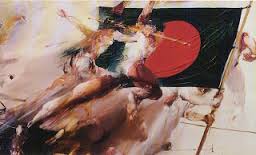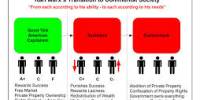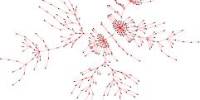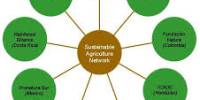Political History of Bangladesh:
Political History of Bangladesh after independence begins in 1971 with the independence of Bangladesh from Pakistan.In 1947 the subcontinent became to independent. But is mater of sorrow that on the thought of two nationalism. Muslim and Hindu Bangladesh joined with Pakistan the Pakistani ruler group dominated Bangladesh is a conolisum. In this position the people’s of Bangladesh had to make is political party. 23 June 1949 established Awami Mulsim League. Awami Muslim League Made is golden role in language movement is Awami Muslim League participated in fourth alliance party in the national pole in 1954 and succeded.
In 1956 ‘Awami Muslim League changed its name and named after Awami League. Awami League made a great role in the movement of Bangladesh liberation war in 1971. In those years (1952-1952) Sheikh Mujibur Rahman the president of Awami league was in the live line of movement. In 26 December 1971Bangladesh became in independent country. Sheikh Mujibur Rahman was the president and said Nazrul Islam was acting president of Bangladesh. Tajuddin Ahmed was the Prime Minister of New Government of independent Bangladesh. Sheikh Mujibur Rahman rule (1971-1975). At the first stage Bangladesh faced some problem and had to make constitution. In 1972 Bangladesh got the constitution and Bangladesh came to a republic country. “The president became to the chief of government and state”.
“Bangabandu Sheikh Mujibur Rahman wanted to make Bangladesh is “Sonar Bangla”. But after ending liberal was social and economical condition were not suitable for this. However Sheikh Mujibur Rahman gave his best to make Bangladesh “Sonar Bangla”. In 1972 Bangladesh faced is destroyed flood and natural calamities so the economical condition went to dog position. “In this position Sheikh Mujib wanted to make national government including All party Leader this theory appears as Bangla. It is to be noted that time was very much critical that time was very much critical for Bangladesh. On 25 January the national assembly passed 4th amendment. In 1975 on 15th August Sheikh Mujibur Rahman and whole family were died by some army rebellion officer Khondoker Mostak and new government after death of Sheikh Mujibur Rahman Khandoker Mostak came throw the president of Bangladesh and arrested four national leaders of Bangladesh. On 7th November Mostak was obbosed by Major Ziaur Rahman.
The Rules of Ziaur Rahman
Ziaur Rahman appeared as the chief administrator and the president of Bangladesh. He took some importance plan to develop Bangladesh. He changed plan to develop Bangladesh. He changed the articles 25 (2) of the Muslim countries. He also changed the main principal of the constitution “He added Bismillahir Rahmaninr Rahim. Full faith on Allah in constitution. He also declared Islamic Party allow in politics. It is to be noted “Islamic Party was band in our constitution.”
Although Ziaur Rahman came with power of army in ring but he made a political party in 1978 called B.N.P. In the pole of 1979 Ziaur Rahman elected as the president of Bangladesh general asmani was his opposite leader. It was president election. In 1979 Ziaur Rahman gave amendment of the constitution. In this amendment all his army ruling works became to authority. In 1981 Ziaur Rahman was died by some army officer in chittagong section.
House rule of Earsad
Vice president Satter took the change of president. But after some day at general Earsad took the charge by throwing army power. Bangladesh 10 state its democracy for second time. All the right of politics cut short the freedom of press closed. It is very important to note that a general Earsad called back Sheikh Hassina form London. Hassina took the charge of chairman of Awami League. After Khaleda Zia took charge the chairman of B.N.P. General Earsad ruled the country as the liked. It was very much need of movement.
Join movement against Earsad
Shaeikh Hassina and Khaleda Zia along with others political party made a strong movement against Earsad that is why Earsad gave national pole in 1986. In this pole Awami League part and became to opposite party. The situation came out of control day after day in a critical situation. In 1991 Earsad hand over his power under the charge of justice Shahabuddin Ahmed. In the possession of free fair election.
B.N.P rule:
In the pole in 1991 B.N.P came in rule and rule (1991-1996) this time called the first democracy government rule after 1975. But it was mater of sorrow Bangladeshi political party’s had no trust each to another.
In the national pole in 1996 Awami League did not take part in election. So this election did not allowed by international diplomacy. After some day B.N.P gave 13th amendment and joined the part of C.T.G. by the C.T.G we got a election in 1996 and it came to accept by nation. Awami league came to rule.
Comparision of democracy in difference ruler:
In the time of Ziaur Rahman (1975-1978). In 1979 the national pole came out during Ziaur Rahman some essential development grown out but men losted their right of politics. During Earsad democracy failed in a block hall. Because he was trainiant and did not care to politics. He also accepted his evil rule by 8th amendment. He used religion emotion of peoples. He added Islam as our national religion.
1991 and them:
The year 1991 is remarkable for the nation because this year Bangladesh came back to democracy rule. But it is our pot luck after taking authority B.N.P engaged with corruption. They wanted to fill all vacancy by their party people democracy came as personal development.
That is why B.N.P losted their mandet and popularity. So they wanted to empower them self by any how. They made plan to influence the pole. Awami League did not take part in the pole. So Bangladesh faced a new crisis B.N.P made a pole of are side and gave 13th amended and C.T.G take place. Awami League came to thrown. But our tradition does not change politics depend on terrisum dominate of against party came only works of power thrown party. We shaw Awami League also dominated came as the main works.
2001-2006: A new era of Bangladesh B.N.P came to thrown and make the politics corrupt 20 they gave as a weapon of wining in pole. So in 2006 Bangladesh faced the most critical situation. Awami League did not support the C.T.G of Hasan Mahmud Khandoker and than Professor Eajuddin Ahmed. In 11th November Fokruddin Ahmed took the charge of government.
Military backed CTG in 2007 and Aftermath
As mentioned above, on 11th January, 2007 a new order emerged in the politics of Bangladesh and this is the CTG led by Dr. Fakhruddin Ahmed and backed by military. Law adviser of this CTG Barrister Moinul Hossain once declared that this government was a military backed CTG and there has to be an exit route for this government. However, the following day Military Chief Moin U Ahmed stated that the government was not a military backed CTG; it was a constitutional CTG and the military was giving necessary assistance to the civil administration under the normal constitutional arrangements. Reforms and activities of this Government so far have been detailed in brief below:
Constitutional Review Commission
On 10th July, 2007 Army Chief Moin U Ahmed said that the constitution should be reviewed through a ‘Constitution Commission’ for preparing new laws and mechanisms to ensure accountability and effective governance. He stated the an elected government may undertake the constitutional review after elections are held by the end of 2008 when a constitution commission might be formed. This is not only an important issue but it also goes to the heart of the present political malaise in the country. Many political leaders of major parties have also realised that intra- party political reforms are not enough for genuine democracy, and have also suggested some constitutional reforms with a view to running an accountable government and parliament. It is suggested that the Commission should consider the following list of issues:
- Should the tenure of the Prime Minister be limited to two terms, since the tenure of the President has been limited to two terms under Article 50(2)?
- Should the number of ministers, state ministers, deputy ministers and advisers, or persons having status of minister/ state minister/ deputy minister be limited to only 10% of the elected members of parliament?
- Should the speaker, after being elected, cease to have any affiliation to anypolitical party, for neutrality?
- Should there be certain number of women candidates for MPs be clearly spelt out, including the do’s and don’ts? Should they be limited only to law- making functions?
- Should the powers of the president and the Prime Minister operate as checks and balances on each other?
- Should all state institutions, including the Election Commission, Anti-corruption Commission, Ombudsman, Auditor General and Public Service Commission be separated, strengthened and made independent of the government?
- Should retired persons of higher judiciary be involved in any part of the administration? Should former Chief Justices continue to be the Chief Adviser in non- party care- taker governments?
- Should there be a National security council for coordinating security and other national issues?
- Should any political party not gaining 5% of popular vote in the parliamentary election be denied representation in the parliament, or not recognised as a registered lawful political party?
Emergency and Arrest of People:
Around 286,000 people including former ministers, lawmakers, political leaders and business tycoons have been arrested across the country on charges of crime and corruption since the state of emergency was declared on January 11, 20067. Of them police arrested 260,000, Rapid Action Battalion about 9000 and the army-led joint forces over 17000 throughout the country. Among them were about 600 listed criminals. The high profile arrests were made after Chief Adviser Fakhruddin Ahmed’s caretaker government declared war on corruption and criminal godfathers.
Minus-Two Formula
This formula suggests that country’s two main political parties AL and BNP should be reformed by retiring or removing their present chairpersons. This is because these two parties are responsible for current political conditions and they should accept the blame and step down. Opponents of this formula argue that the minus-two formula is undemocratic as the selection of leadership is a prerogative of the party council. The party councilors can choose anyone as the party leader, and keep him/her as leader as long as they wish. However, people must have choice to elect their leader but if the same leader holds on to the party chairmanship, there will be no choice left to the people. Thus the argument that the party councilors can chose anyone as their party chief and keep him or her leader as long as they want- is not consistent with the theory and principle of democracy. Therefore, the minus-two formula, although referring to two specific persons is, indeed, a general principle of the democratic political system. More specifically, this formula is key to a lasting cure for our ailing political parties8.
Pole of 2008
The pole of 2008 is very importance for Bangladesh. Because this pole bearing out he democracy in Bangladesh. The ruling age of Fakruddin is a block chapter, our right of voice and politics was closed. Business men were very much abased by the government. Although a C.T.G has authority to role for 3 months but it was 2 years. After 2 years we got on election.
Awami League ruling age:
Awami League took the charge of government but the political evil and domination of opposite party donet on change. Awami Leagud also gave an amendment excluding C.T.G. It is now for discussed mater in national life. B.N.P declared not to join in election under internal government. Now our politics will go on to bad position day by day. We should change our tradition of getting power and thrown. Our national problem jointly and make sure our social welfare. Our political party should not take step against government but should take step for common people. Our political party should have honour to each to another.
Thanks
















